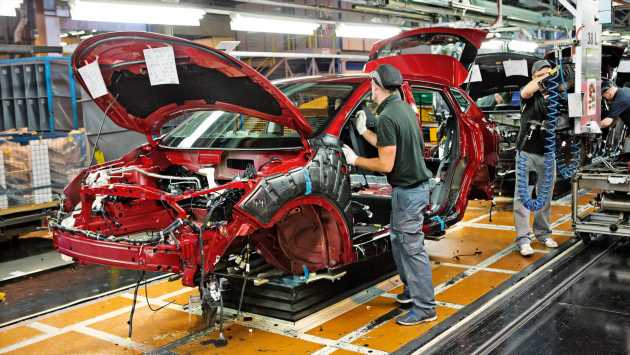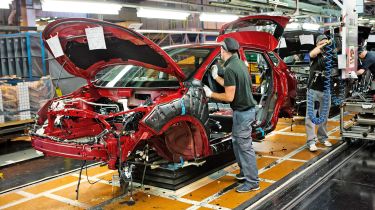Electric cars made in Europe face £3,400 UK price hike from January
Failure to renegotiate EU-UK Brexit trade deal will mean tariffs make Europe’s electric cars uncompetitive in the UK market, industry body warns
The clock is ticking on the threat of swingeing new tariffs on British built electric cars sold in the European Union and their EU built rivals sold in the UK, as the implementation date for tough new Rules of Origin requirements looms.
A deal agreed between the UK and EU as part of the Brexit negotiations means that from January next year EVs traded across the channel must have 45 per cent ‘local content’ from either market, while their batteries must have between 50 and 60 per cent local content.
The rules were agreed before the Covid pandemic and before Russia’s war on Ukraine, and the ensuing supply chain shortages have helped to make meeting the rules of origin targets on batteries impossible for EVs currently built in either the UK or Europe, the car industry says.
-
Electric car sales targets to remain despite delay to petrol and diesel sales ban
If the deal isn’t renegotiated, a 10 per cent tariff will be applied automatically to EVs traded between the UK and EU, which the Society of Motor Manufacturers and Traders says will add £3,400 to the cost of an EU-produced EV sold here, and £3,600 to the cost of a UK-made EV sold in Europe.
Internal combustion-engined cars are not impacted by the new tariffs, meanwhile, because they don’t have large batteries and the components that make up the majority of their value are sourced locally. This leads to fears that increased EV prices will work against the transition away from petrol and diesel cars by making EVs uncompetitive overnight and effectively incentivising the sale of fossil-fuelled models.
Car makers on both sides of the channel are lobbying hard against the imposition of tariffs in January, instead calling for a three-year delay to the new rules giving time for new battery ‘gigafactories’ to come on stream here in the UK and in Europe.
“Our manufacturers have shown incredible resilience amid multiple challenges in recent years, but unnecessary, unworkable and ill-timed rules of origin will only serve to set back the recovery and disincentivise the very vehicles we want to sell,” says SMMT (Society of Motor Manufacturers and Traders) chief executive Mike Hawes. “Not only would consumers be out of pocket, but the industrial competitiveness of the UK and continental industries would be undermined. A three-year delay is a simple, common-sense solution which must be agreed urgently.”
Want the latest car news in your inbox? Sign up to the free Auto Express email newsletter…
Source: Read Full Article



 Electric car sales targets to remain despite delay to petrol and diesel sales ban
Electric car sales targets to remain despite delay to petrol and diesel sales ban

